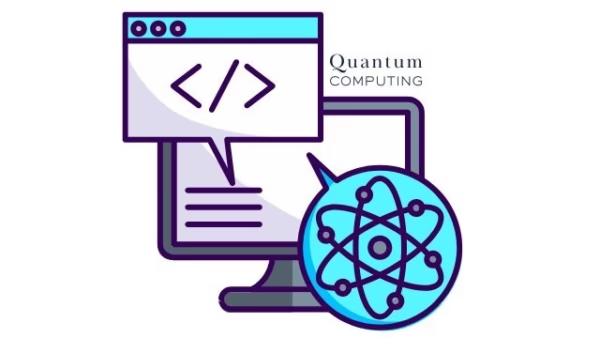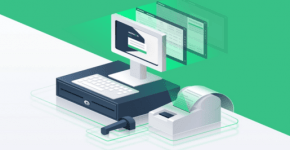Learn Quantum Computing: A Beginner’s Easy Guide 2025

Quantum computing has the power to revolutionize the entire world. It is one of the fastest-evolving fields that has the potential to take classic computing to new heights of success. It can solve problems much faster than traditional computers. Despite being in the initial phase, quantum computing is in a position to innovate and streamline as many industries as possible.
If you are wondering what quantum computing is and how it works, you are at the right place. In today’s guide, we’ll discuss fundamental aspects, importance, phenomena, and its uses to help beginners understand the complexity of quantum technology. The ultimate objective is to unveil the layers of quantum computing and provide a comprehensive overview of the most evolving computing technology.
Let’s Get Started!
Meaning of Quantum Computing
First things first! Understand the basic meaning to make things easier. Quantum computing is a modern technology that merges the set of rules of quantum physics with computation. It helps develop robust computers that can resolve multiple problems super-fast by applying a set of principles of quantum mechanics.
It is a better version of classical computers. Quantum technology uses quantum bits or also known as qubits, to solve complex problems like a bullet train.
Quantum mechanics is a scientific theory in physics that determines how the smallest particles, like electrons and photons, behave. It unveils the concepts of superposition, entanglement, and quantum interference, like how waves can add or cancel each other. These are the key fundamentals of quantum computing.
Understanding the Key Principles of Quantum Mechanics
There are three principles, as mentioned above, that lay the foundation for how quantum computers work and why they can solve complex problems instantly:
- Superposition: Under this principle, a quantum particle like an electron or qubit can exist in more than one state at the same time. For instance, a particle can be in two different locations simultaneously while spinning up or down at the same time. This allows new-age computers to perform multiple calculations in parallel at the same time.
- Entanglement: It is also an essential aspect where one or more particles are tied together, which makes their states dependent on each other.
In simple words, the state of one particle can affect the other particle instantly. This promotes faster communication and computing regardless of how far apart they become.
- Quantum Interference: Under this, the smallest particles behave like waves and interact with each other. This can boost or cancel the chances of a few outcomes.
What is Quantum Computing Important?
Quantum computers have the potential to revolutionize diverse fields, such as material science, medicine, drug discovery, and cryptography, by solving problems that are hard to solve on classical computers.
In simple words, it can solve complex problems in a matter of a few seconds that would take normal computers years to resolve. It can even model chemical reactions and molecules better, letting scientists discover new cures efficiently. You can also create robust encryption methods to ensure data security. In addition to this, quantum computing can make AI programs learn and make quick decisions by processing big chunks of data faster.
What’s more! Quantum computing can help scientists understand climate-changing conditions and predict the weather more accurately. Isn’t amazing!
Quantum Computing: Five Key Components
- Qubits
Unlike bits, which can be 0 or 1, qubits leverage superposition to exist in more than one state at the same time. The best part is that quantum computers can easily process piles of information in a breeze, saving you a lot of time.
It enables quantum computers to process huge amounts of data in parallel. Qubits can be photons, ions, and superconducting circuits. It can boost computing systems by linking other qubits for better functioning and delivering fast results.
- Quantum Gates
These are the building blocks of quantum circuits. Like logic gates in classical computing, they manipulate the qubits’ states by applying quantum operations, such as creating superposition, flipping states, etc. Unlike classical gates, quantum gates operate on difficult amplitudes, allowing you to transform quantum states.
- Quantum Circuits
These are like instruction sets that inform qubits about the tasks. These circuits are formed by linking quantum gates together, like tiny commands. They can break down big numbers and help find the best answers or study data in no time.
- Quantum Measurements
It involves the procedure of extracting data from qubits by merging their quantum states into classical results. It can translate probabilistic quantum data into practical results. However, measurements can affect the qubit state to maintain the integrity of computations.
- Quantum Hardware
It is the physical machine that operates quantum computers. It can be formed utilizing multiple technologies, such as trapped ions, superconducting circuits, and photons. To maintain qubits, the hardware needs special conditions, such as extremely cold temperatures and protection from outside vibrations.
Quantum Computing Uses in Today’s World
Quantum computing can revolutionize various industries, including healthcare, Research and Development, Finance, etc. It can help solve problems that are difficult to solve with classical computers. Here are a few new-age industries thriving in quantum technologies:
- Quantum Cryptography
It is a popular technique that leverages the fundamentals of quantum mechanics to enhance communications. In traditional cryptography, mathematical algorithms are used, whereas quantum cryptography uses quantum mechanics to enhance information
- Financial Modeling
Quantum computing makes financial modelling a breeze. It not only manages a large database but also conducts difficult calculations at the same time to help optimize investment portfolios and mitigate risks. It can help banks to make the right financial decisions at the right time.
- Energy Optimization
It can also be used to optimize energy consumption in different industries, ranging from transportation to healthcare and manufacturing. By analyzing the behaviour of molecules, quantum computers can help address ways to minimise energy usage, boost efficiency, and reduce waste. This can help save money and carbon footprint.
- Drug Discovery
Quantum computing text and examine the behaviour of different molecules to boost drug discovery. It could help researchers find new drug candidates with great accuracy. It can also reduce the time and expenses related to bringing new drugs to market.
- Artificial Intelligence
Believe it or not! Quantum computing allows developers to create machine learning algorithms as fast as possible without a hint of stress.
Conclusion
The upgraded version of computing is known as quantum computing. Its ability to do multiple calculations or solve problems at the same time faster can make a world of difference. It can perform tasks in seconds that would take today’s computers millions of years.





